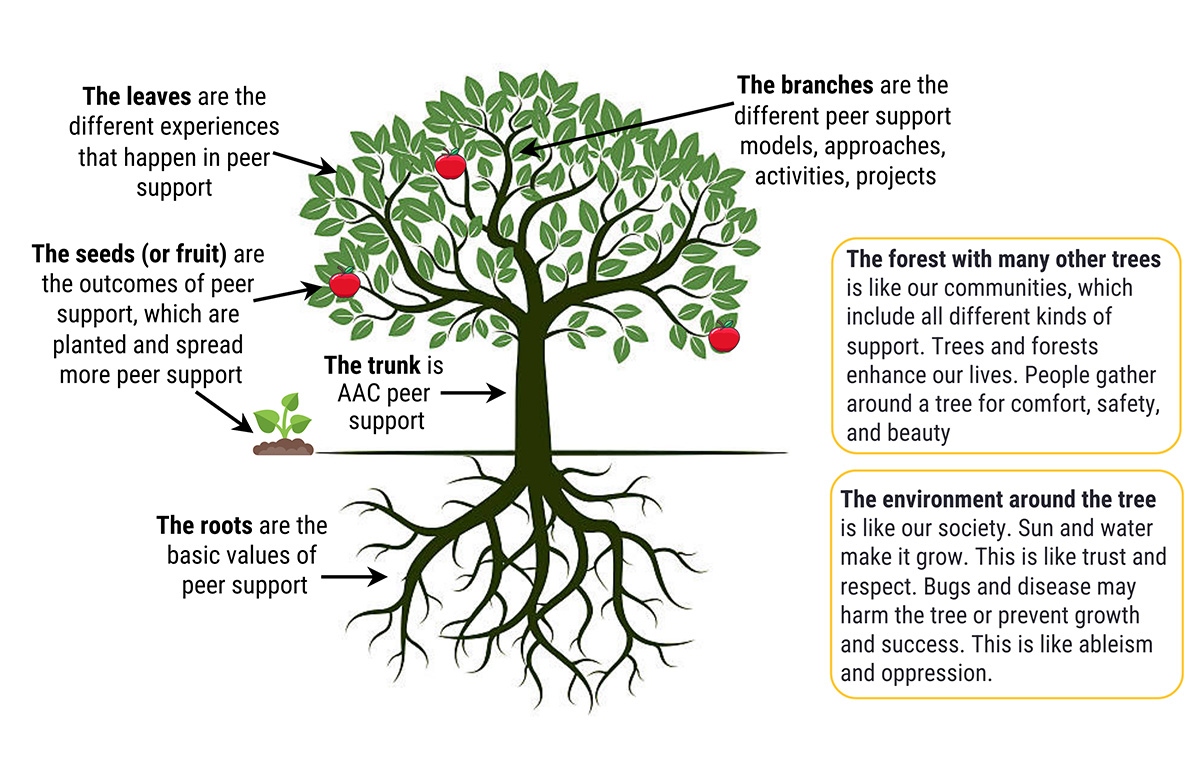The UCEDD at Oregon Health & Science University’s Institute on Development and Disability has received $775,000 in supplemental funding from the Administration on Disabilities (AoD) to expand the Augmentative and Alternative Communication (AAC) Peer Support Project. The supplement builds on the recently completed project funded by AoD in partnership with the Association of University Centers on Disabilities (AUCD) and CommunicationFIRST. The award is a testament to the legacy of recently retired OHSU researcher Dr. Melanie Fried-Oken, who was the recent project PI, closing out her over 45-year career as an internationally renowned researcher of assistive technology. The new funding, with PIs Rhonda Eppelsheimer, M.S.W. (UCEDD Director) and Emily Quinn, Ph.D., CCC-SLP (UCEDD Associate Director), will support the critical next step: moving from research and recommendations into implementation of a national peer support system.
Initial work: Research and recommendations for a national plan about AAC peer supports
In the first year of the AAC Peer Support Project (February 2024–March 2025), OHSU UCEDD worked in partnership with CommunicationFIRST to convene a national consortium of more than 60 individuals and over 30 organizations, including AAC users, family members, providers, advocates, and researchers. Together, the consortium conducted the first scoping review of AAC peer support, surveyed 135 AAC users about their experiences and needs, identified barriers and facilitators, and built consensus on recommendations for a nationwide model.
Among the key findings were:
(1) AAC users strongly desire peer support, especially to improve self-advocacy and communication skills; (2) peer support can and should take multiple forms, from informal peer connections to structured mentoring; and (3) evaluation of peer support activities must be driven by AAC users themselves.
Read the final written report from this portion of the project (A National Partnership to Advance Peer Support Models for People Who Need Augmentative and Alternative Communication (AAC)) on the AAC Peer Support Project webpage. An executive summary and a plain language version of the final report are also available.
Next steps: Implementation of a national peer support network
This $775,000 in supplemental funding from AoD will power the next steps of the project: establishing a sustainable, national peer support network to increase access to and use of augmentative and alternative communication (AAC) for individuals with speech-related disabilities.
In year one, a Leadership Coalition led by AAC users will be established. Together, the team will develop infrastructure and resources for a sustainable network, and also pilot outreach, training, and evaluation strategies. These activities will set the stage for the 3-year action plan and provide the foundation for a national peer support system to reach all people who would benefit from use AAC.










